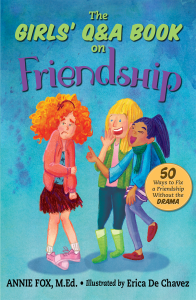
We’re not raising kids, we’re raising human beings.
I loved Dr. Ross Greene’s book, Raising Human Beings, which focuses on parents and kids solving problems collaboratively. I didn’t love our podcast interview. Unfortunately, a poor connection between California and Maine mangled the audio so badly I couldn’t post it. Audio or no, you’ve got to hear what Dr. Greene has to say. Here’s an excerpt of our conversation:
Dr. Greene: One reason you want to solve problems collaboratively with kids who are behaviorally challenging is so he won’t put his fist through your wall. I’m seeing increasingly little difference between kids we call “behaviorally challenging” and kids we don’t. The reason to be solving problems collaboratively with any child is because you want to teach the skills that are on the better side of human nature. That’s a really good thing.
Annie: I agree. When parents model good problem-solving skills and work with their children to find solutions in non-violent ways then kids are learning a lot about problem-solving.
Dr. Greene: You do reap what you sow! If power to influence or solve problems with a kid is what you use, then power is what you’ll get back. But if collaboration is what you’re using then collaboration is what you’re going to get back.
“The role of a parent in the life of a kid is partner. We get into the most trouble, as parents, when we are shooting for control. Control is a delusion.” Dr. Ross Greene
Annie: Many parents seem confused about their role, vis a vis power, especially parents of tweens and teens. At that age kids seem programmed to push back. How can we help avoid those struggles?
Dr. Greene: All “pushing back” behavior is the child saying, “I’ve got concerns here that I want addressed.” If we use power to address those concerns, then we blow those concerns off. Kids don’t feel heard, their concerns don’t get addressed, and they stop talking to us. The role of a parent in the life of a kid is “partner.” We get into the most trouble when we shoot for control. Control is a delusion. You don’t have control. Many parents of adolescents have discovered that already. Those still fighting with their adolescents haven’t quite come to it yet.
Annie: It’s easy to be a good parent when everything is going just fine, isn’t it? I picture the family at the supermarket, it’s late, been a long day, everyone is hungry, maybe a little stressed out, and your kid grabs one of those sugar-packed impulse items by the checkout. You don’t want her to have it. There’s a struggle. Other parents are watching. How do you problem-solve collaboratively in a situation like that?
“Parents and kids don’t have to be adversaries. It all comes down to how we solve problems collaboratively when kids are failing to meet expectations.”
Dr. Greene: The trick is get out to of the heat-of-the-moment. Most kids and care-givers get into the same conflicts every week. That makes them predictable and it means we don’t have to wait until the heat-of-the-moment to solve those problems. We can solve them with a planned approach. I ask parents: “Which of your expectations is your child having trouble meeting on a reliable basis? (Make a list!) Which ones would you like to start working on first?” That’s how to start solving problems collaboratively.
Annie: Makes sense. Some examples of common parental expectations that a child is getting homework done, getting up and out the door for school in the morning. Too much screen time That’s a common struggle in so many families. How do we deal with that collaboratively?
Dr. Greene: First parents have to get clear on what their expectations are. Parents don’t always know. After that we can use the 3 steps of Plan B (solving problem collaboratively) vs. Plan A (parents trying to solve the problem unilaterally).
Step 1: (The Empathy Step) Get the conversation started. For example, “I’ve noticed it’s hard for you to end the screen time to do your homework or to come in to dinner. What’s up?” The goal of this empathy step is to gather information from the kid about his concern or point of view about this expectation he’s having difficulty meeting. If we don’t hear the kid’s concern, this problem will remain unsolved.
Step 2: (Define Adult Concerns) Adults have concerns that need to be heard and addressed, as well. Typically adults try to get their concerns met with Plan A (unilaterally with power). Now they can get their concerns met with Plan B (collaboratively, as partners).
Step 3: (The Invitation) This where parent and child develop a solution, but it’s got to be realistic, mutually agreed upon, and mutually satisfactory. The solution truly and logically addresses the concerns of parent and child. If it doesn’t, the problem is not solved.
Annie: I can see this model requires flexibility and openness on the part of the parent, especially if he or she wasn’t parented this way a generation ago.
Dr. Greene: It definitely requires a change in lenses, in one’s perspective, and in one’s definition of authority. A lot of parents are initially scared that this model will result in their losing authority. In reality, they’re not only picking up authority, they are dramatically improving the relationship with their child, dramatically improving communication.
“This is not about strength and power. It’s about empathy. Disagreeing with your kids, that’s going to happen. Kids’ failing to meet expectations? It will happen. Does that have to mean conflict? No!” – Dr. Ross Greene.
Learn more about Dr. Ross Greene at LivesInTheBalance.org
.















